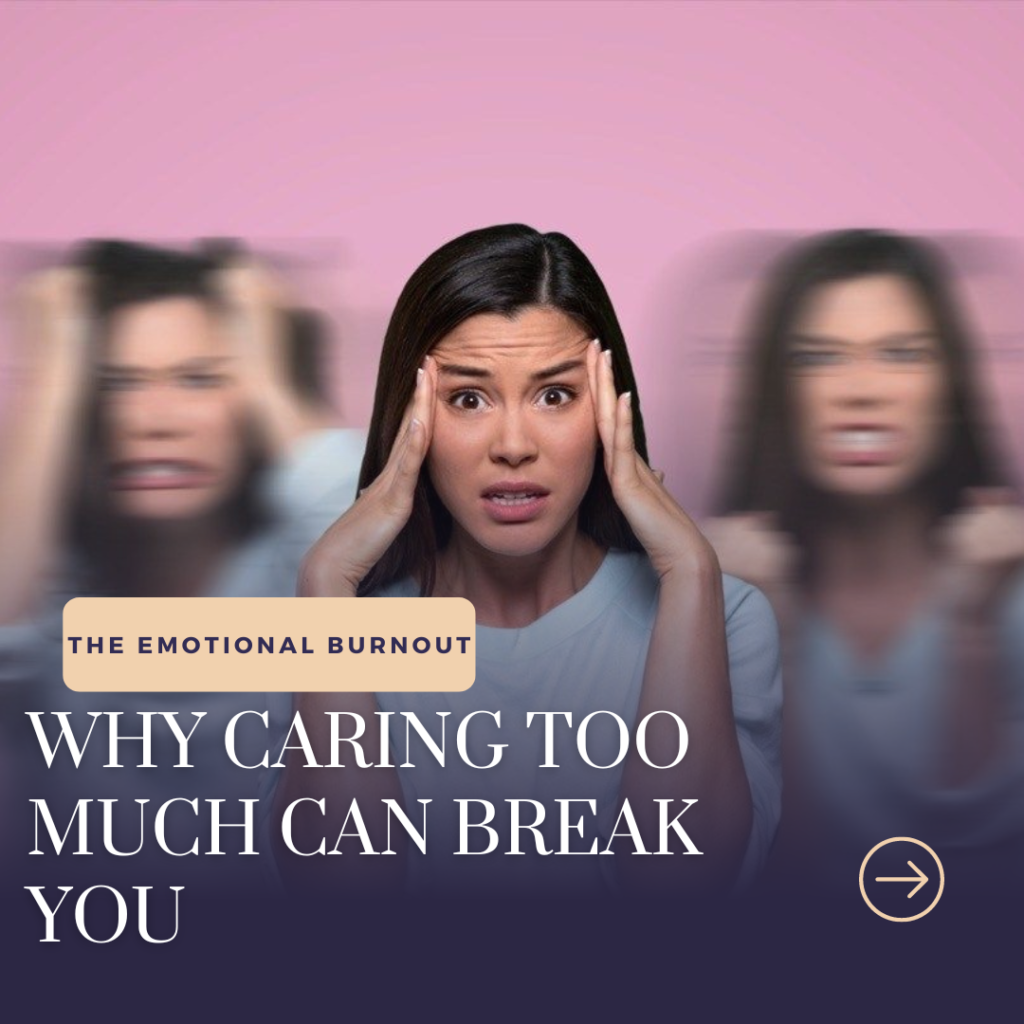Emotional Burnout: Why Caring Too Much Can Break You
In a world that glorifies hustle, empathy, and selflessness, many people find themselves in a
constant state of giving. Whether it’s caring for family, friends, or even strangers, being there for
others is often praised as a virtue. But what happens when you care too much? Emotional
burnout, a topic frequently discussed in therapy, is the result of prolonged emotional stress from
constantly putting others’ needs before your own. It’s not just about physical exhaustion;
emotional burnout can leave you feeling empty, detached, and even resentful.
We will explore the signs, causes, and dangers of emotional burnout, while tackling the question:
Is there a limit to how much we should care? We’ll dive into the root of this issue, explaining why
burnout happens, how to recognize its early warning signs, and what you can do to prevent it
before it’s too late.
What is Emotional Burnout?
Emotional burnout isn’t the same as regular tiredness or feeling overwhelmed for a short period
of time. It’s a gradual process that builds up over weeks, months, or even years of emotional
strain. When you’re constantly supporting others—whether emotionally or physically—without
taking time for yourself, it drains you. It’s like running a marathon without ever stopping for
water.
One of the main reasons emotional burnout is controversial is because society tends to reward
selflessness. We applaud people who go out of their way to help others, often ignoring their own
needs. As a result, many people feel guilty for even acknowledging that they’re burnt out.
Signs you’re experiencing emotional burnout
1. Emotional Exhaustion: You feel drained, emotionally fragile, and unable to cope with even
minor stressors.
2. Detachment: You begin to feel distant or disconnected from the people you care about. It’s as
if you are emotionally “numb.”
3. Reduced Compassion: Once a deeply empathetic person, you now feel indifferent, even
resentful, towards those you’re helping.
4. Physical Symptoms: Emotional burnout doesn’t just affect your mind. Headaches, insomnia,
and even frequent illnesses are common signs.
5. Lack of Motivation: Tasks that once brought you joy now feel like a burden. You’re operating
on autopilot with no sense of fulfillment.
How to protect yourself from emotional burnout
1. Set Boundaries: Saying “no” is not selfish; it’s necessary for your emotional health. Learn to
establish clear boundaries with the people in your life.
2. Practice Self-Care: Make time for activities that recharge you, whether it’s reading a book,
going for a walk, or simply doing nothing.
3. Be Honest with Yourself: If you’re feeling burnt out, don’t wait until you’re completely
drained to acknowledge it. Address your emotions early on.
4. Delegate Responsibilities: You don’t have to do everything yourself. Whether at work or at
home, ask for help and share responsibilities.
5. Talk to a Professional: Sometimes, recognizing and dealing with burnout requires outside
help. Therapy is a safe space to process and recover from emotional exhaustion.
In conclusion, emotional burnout is a real and pervasive issue, especially in a world where empathy and care are often expected without limits. By taking a step back, setting boundaries,
and prioritizing self-care, you can protect your emotional well-being while still being there for
the people who matter most. Caring for others should never come at the cost of breaking
yourself.
Embrace the idea that your well-being is just as important as anyone else’s. After all, you can’t
pour from an empty cup.
